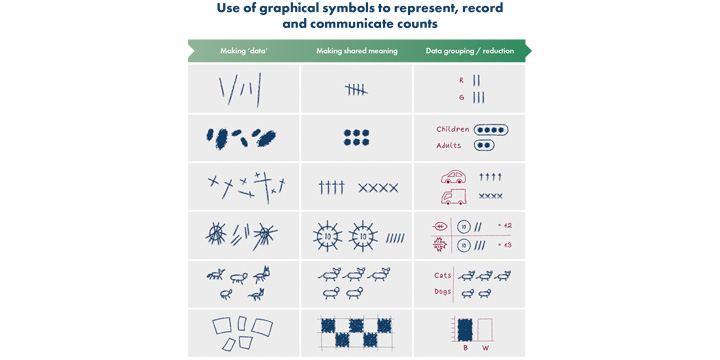01 August 2019

What does research suggest about early development of graphicacy?
- Young children develop drawing and writing simultaneously as part of graphical and cognitive development and should be encouraged to explore flexible and context-dependent meanings of their invented marks
- It is important to allow students to invent and explore their own early representations of data and not impose conventional representations on them
- Students should invent and move fluidly between different representations and their structures, shapes and narratives
- Students should be encouraged to make ‘object graphs’ and substitute items for counted objects as well as representing them in collections, as part of exploring counting through representation of categorical data
- Students can practise understanding and using graphs, charts and tables to persuade and explain
- It is important to consider design and ethical considerations as part of graphicacy
View Espresso